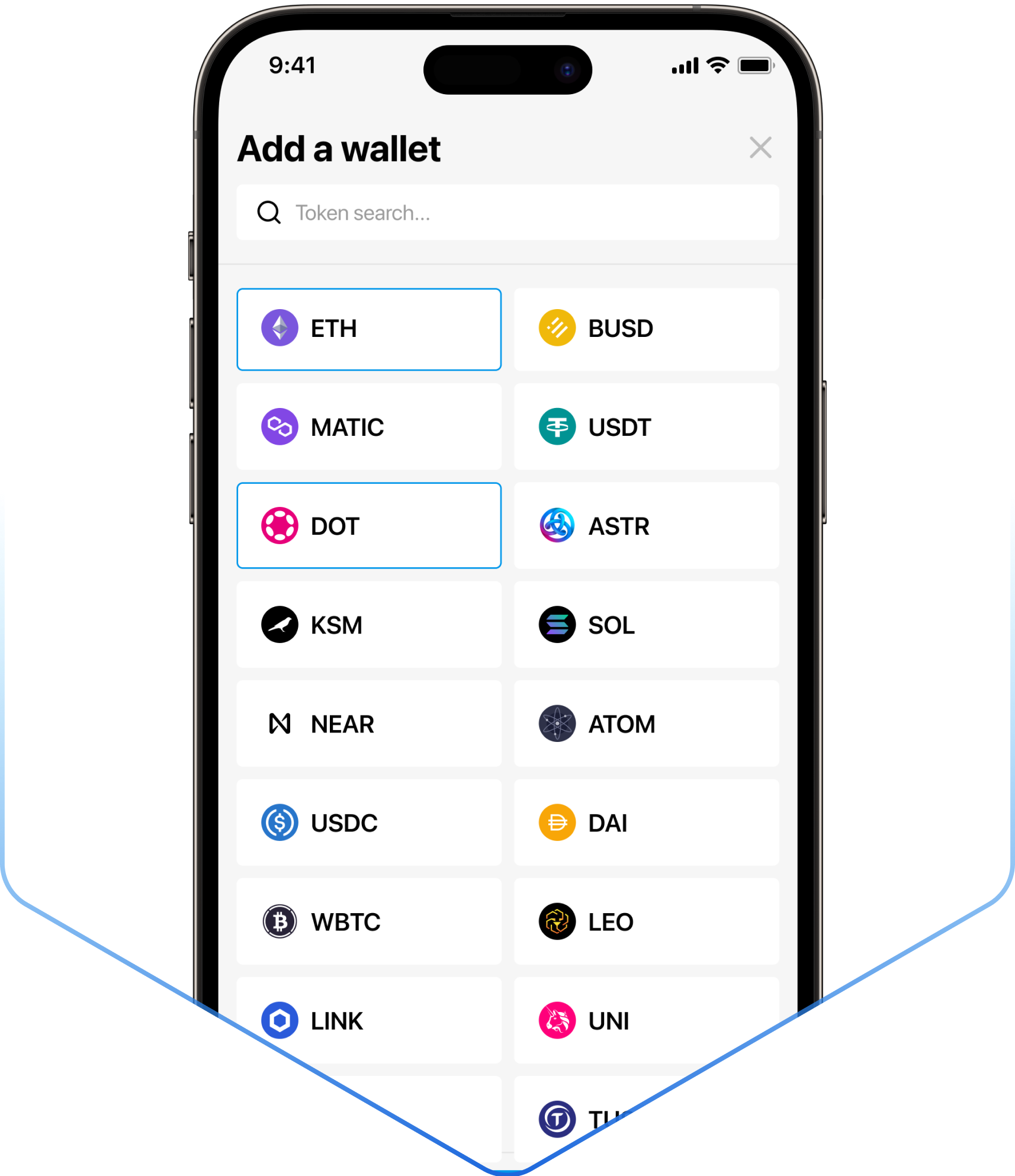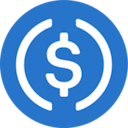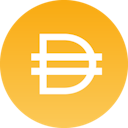Bitcoin wallet
Buy Bitcoin in minutes
A no-nonsense app and Industry-leading technology makes Bitcoin investment simple, easy, and safe
Buy and secure your Bitcoin (BTC) in just a few minutes
1. Download Gridlock Wallet
Gridlock is a free and secure place to manage Bitcoin, Ethereum, and hundreds of other assets.
2. Setup your account
Adding guardians is a quick and easy way to turn a regular wallet into an ironclad vault. Say goodbye to the hassle of seed phrases; with guardians, recovery is worry-free and effortless.
3. Get Bitcoin BTC
Invest as little as $50 or as much as $18,000 daily. Crypto is transferred directly to your wallet. Credit/Debit cards accepted.
Secure your Bitcoin wallet with Gridlock
Ultimate Protection
Secure your digital assets with unparalleled safety through Gridlock. Our innovative distribution method ensures that there is no single point of failure, significantly reducing the risk of loss or theft. By spreading your crypto assets across multiple secure locations, Gridlock offers a level of safety that stands out in the world of digital currency storage.
Total control
Have absolute control over your cryptocurrency with Gridlock. Our system empowers you to be the sole authority over your digital assets. With Gridlock, there`s no reliance on intermediaries or external entities for access or management. You have the exclusive control, always.
Effortless ownership
Enjoy peace of mind with Gridlock`s effortless management. Our system proactively monitors and maintains your storage network, ensuring it remains secure and up-to-date. You don`t need to be a crypto expert to have expert-level protection. Gridlock works in the background, providing a seamless experience that keeps your digital currencies protected without the extra effort on your part.
Loss Recovery
Recover lost crypto confidently with Gridlock. Our unique system allows you to easily recover Bitcoin and other digital currencies with the help of your guardians. This distinctive approach sets Gridlock apart as the leader in safe crypto storage.
Bitcoin
Bitcoin (BTC) is heralded as the pioneering cryptocurrency, a revolutionary form of digital money utilizing peer-to-peer technology to foster decentralized transactions without a central authority or bank's oversight. Engineered by an enigmatic entity known as Satoshi Nakamoto, who introduced the world to Bitcoin via a white paper in 2008, it has since set the precedent for blockchain-based digital currencies. Its open-source protocol invites participation from developers worldwide, ensuring transparency and continuous innovation within its infrastructure.
A notable and unique aspect of Bitcoin is its scarcity—only 21 million BTC will ever exist, carving a niche for itself as a hedge against inflation. This element of rarity, paired with its fungibility where each unit of Bitcoin is equivalent to another, and its divisibility down to 100 millionths of a Bitcoin (known as a satoshi), underscore its value proposition in the evolving financial landscape.
Bitcoin mining has become a specialized process, with miners utilizing ASIC (Application-Specific Integrated Circuit) chips designed specifically for Bitcoin's SHA-256 hashing algorithm. This process not only secures the network but also facilitates the creation of new bitcoins, with the network averaging a new block approximately every 10 minutes.
The ascension of Bitcoin has paved the way for other cryptocurrencies and has been embraced by some nations as a means to counteract economic instability, exemplifying its emerging role as an alternative financial asset. However, to manage and transact with Bitcoin, users must procure a Bitcoin wallet, a secure digital repository that allows for the sending and receiving of the currency.
Unique Characteristics of Bitcoin:- Scarcity: Only 21 million BTC will ever exist, creating a hedge against inflation.
- Fungibility and Divisibility: Each unit of Bitcoin is equivalent to another and divisible down to 100 millionths (satoshi).
- Bitcoin Mining: Specialized process utilizing ASIC chips, securing the network and creating new bitcoins.
In an ecosystem teeming with various Bitcoin wallets, with disparate features and security measures, it's crucial to select a wallet that aligns with one's financial activities and needs. While some wallets may be rudimentary, only facilitating basic transaction capabilities, others like Atomic Wallet emerge with a more robust offering—integrating an in-wallet exchange, staking options, and additional conveniences for a more dynamic user experience.
Lastly, in the grand tapestry of cryptocurrency storage solutions, Gridlock stands out as a beacon of secure asset management, representing a new era of digital currency safekeeping.
Though Bitcoin's journey started as a solitary venture, its success has sown the seeds for a multitude of cryptographic currencies, redefining the landscape of money and commerce. As it continues to evolve, Bitcoin remains at the heart of the digital currency conversation—a store of value for those looking ahead to the currency of the future.
Learn more at bitcoin.org.
Types of Bitcoin Wallets
Picking out the best Bitcoin wallet is easy once you understand the options available. There are many different types of Bitcoin wallets out there, with some designed for rock-solid security, others built for ease of use, and a few that offer a bit of both.
Software Wallet
Software wallets are the most common option and are a quick way to store Bitcoin. They can be apps on your phone, add-ons in your web browser, or even websites. To get started, download the wallet of choice, make an account, and soon, you are set up to store or transfer your crypto.
But there's a catch. Your encryption key is not as safe in these types of wallets. The encryption key is like a super-secret password for your Bitcoin and is kept on the web or in your browser. That's why these are called "hot wallets." These wallets work online, which means they're more accessible to hackers, and if they get your encryption key, you lose all of your Bitcoin.
Securely managing software wallets can be tricky as well. They use something called a seed phrase—a list of words that lets you into your wallet. Mix up these words or forget them, and you will forever lose access to your wallet! One mistake and your Bitcoin is lost.
These issues make it clear that while software wallets are handy for quick buys and moving money around, they have risks.
Hardware Wallets
Hardware wallets are compact, portable vaults that securely store the unique keys for your Bitcoin and keep those keys offline and away from hackers. This means they're not connected to potentially vulnerable internet-linked devices like computers. To use them, you must physically connect these wallets to your computer when transferring your Bitcoin.
The offline nature of hardware wallets provides a strong barrier against hackers, as your secret keys are not accessible via the internet. These devices are secured with a PIN or password to protect from someone stealing all of your Bitcoin if they find your hardware wallet.
However, there are notable drawbacks to hardware wallets. They're not the most convenient for regular, day-to-day transactions. Each time you need to make a transaction, you must physically connect your hardware wallet to a device, which can be cumbersome. This process can be a significant hassle and potentially a missed selling opportunity if there is a big change in the price of Bitcoin.
Using hardware wallets can be tricky, especially for people new to cryptocurrency. These wallets differ from online or phone wallets because you need to know more about keeping and moving your digital money safely. You have to be careful with many security steps and learn how to connect the wallet to other places to make payments. You could lose your Bitcoin if you make a mistake, like mixing up private keys or not following the right steps.
Hardware wallets also have a big flaw because they keep all your digital money in one place, on one fragile piece of plastic. If you lose the wallet, it breaks or stops working; you might not be able to get your money. These wallets usually have a backup plan using special phrases, but getting your Bitcoin back this way can be complex and could fail outright if you've lost your seed phrase. If you lose these backup phrases or someone steals them, your Bitcoin is gone forever.
Web Wallets
A web wallet, which is usually part of an exchange, is another way to store Bitcoin, but they come with risks. A big part of these wallets is that they are "custodial," which means the website or service holds onto your encryption key – the super-secret code that locks and unlocks access to your Bitcoin.
Here's the catch with custodial wallets and exchanges: when someone else has your encryption key, they have full control of your crypto, and you have no control. There's a common saying in the crypto world, "Not your keys, not your coins." This means you don't own your crypto if you don't control the keys. So, if the people running these wallets or exchanges are not reliable or make mistakes, you could lose all your cryptocurrency.
For example, if the website gets hacked, has technical problems, or even if the people running it are dishonest, your Bitcoin could be at risk. Since they hold your keys, they control your Bitcoin, and if something goes wrong on their end, you might not be able to get your crypto back. This is why many people are cautious about keeping their crypto in custodial wallets or exchanges, especially for long-term storage. They're often flashy and convenient for trading, but they are not the safest place to keep your digital money for a long time.
Gridlock Wallet
The Gridlock Wallet is a modern solution for storing Bitcoin, offering a unique blend of features that set it apart from traditional hardware and software wallets. This is possible because Gridlock is a distributed Bitcoin wallet.
Unlike hardware wallets, which are reliant on a single device, the Gridlock Wallet doesn't rely on a single device, making it less risky in terms of physical loss or damage. It's also more user-friendly, eliminating the complex steps that often make hardware wallets daunting, especially for newcomers.
In contrast to software wallets, which often leave users juggling complex seed phrases and facing the risk of a single point of failure, the Gridlock Wallet offers a significantly higher level of security. Its distributed nature means it does not rely on a single password or code, making it a stronger, smarter choice for protecting your digital money.
Gridlock Wallet offers a secure and user-controlled alternative to web wallets and exchanges. Web wallets, which are often custodial, pose risks like hacking and potential mismanagement by the wallet providers. Gridlock users maintain full control over their encryption keys, greatly reducing the risk of losing Bitcoin due to these external factors.
Lastly, the Gridlock Wallet simplifies the recovery process. Where other wallets depend on complex seed phrases susceptible to loss and theft, Gridlock provides a much simpler and safer way to regain access to your account based on the novel guardian protection mechanism.
Overall, the Gridlock Wallet emerges as a comprehensive option for those seeking the security of a hardware wallet, the convenience of a software wallet, and the true ownership of a non-custodial solution. Its design addresses the common pitfalls of all alternatives, making it an attractive choice for secure and hassle-free Bitcoin ownership.
Remember, when you're picking a wallet for your Bitcoin, it's all about what fits your needs and keeps you feeling secure. Whether it's the quick software wallet, the secure-but-complex hardware wallet, the risky web wallet, or the super-smart Gridlock wallet, choose the one that's right for you and your Bitcoin.
Discover other cryptocurrencies supported by Gridlock Wallet
With Gridlock, you can safely store over 1000 cryptocurrencies, including these listed below.



















